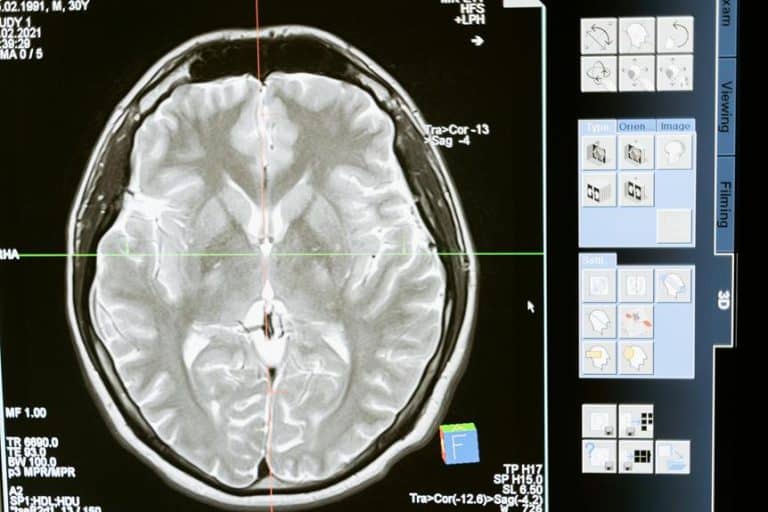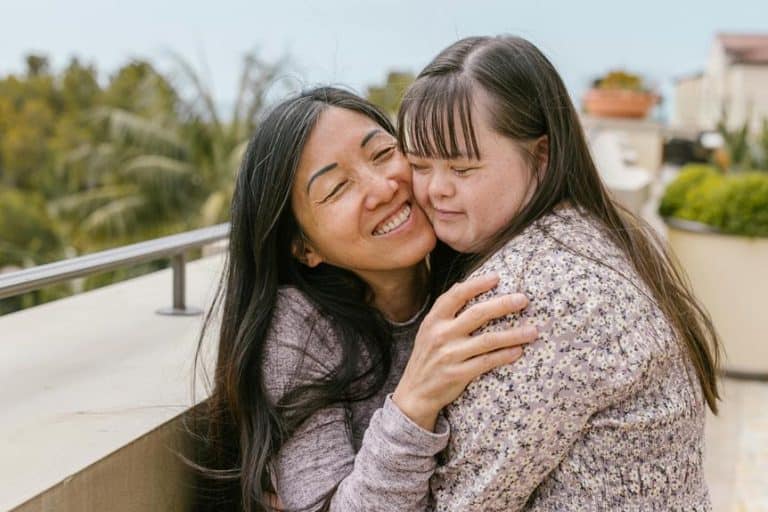Adhd Dyslexia Gifted
Oh, the joy of maneuvering the intricate web of ADHD, dyslexia, and giftedness all in one individual. The complexities and nuances that arise when these three qualities intertwine can be both fascinating and perplexing.
How do these traits complement each other, and what challenges might they pose? Join me as we explore the multifaceted world of 2E students and uncover the strategies that lead to their success in academia and beyond.
Key Takeaways
- Intersection of ADHD, dyslexia, and giftedness presents challenges and strengths.
- Tailored support and recognition of cognitive strengths are crucial for success.
- Leveraging unique perspectives and problem-solving skills fosters innovation.
- Promoting inclusive environments and community support enhances overall well-being.
Understanding ADHD, Dyslexia, Giftedness Intersection
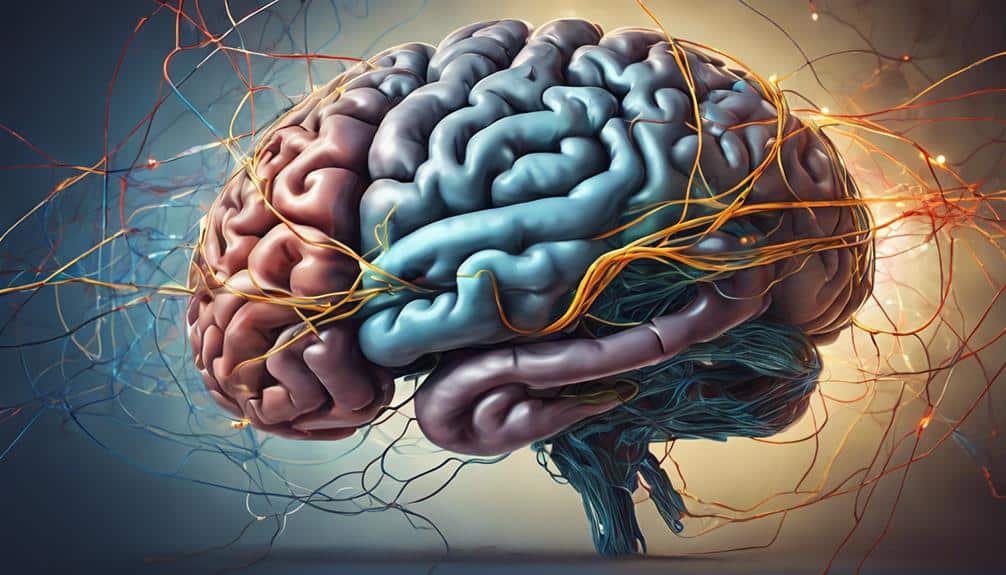
Exploring the intricate intertwining of ADHD, dyslexia, and giftedness requires a nuanced understanding of how these facets converge to shape individuals' experiences and abilities.
Dyslexia, a specific learning disability, can create challenges for gifted children. While they may excel in certain areas due to their giftedness, dyslexia can hinder their reading and writing abilities. This disconnect between intellectual capabilities and academic performance can be frustrating and lead to feelings of inadequacy.
Gifted children with dyslexia may struggle to keep up with their peers academically, despite their advanced cognitive skills. The frustration of not being able to demonstrate their true potential due to difficulties in reading and writing can impact their self-esteem and motivation.
It's essential for educators and parents to recognize these struggles early on and provide tailored support to help these children thrive. By addressing the intersection of dyslexia and giftedness, we can create an environment where these individuals can reach their full potential and succeed academically and personally.
Common Challenges Faced by Individuals

When maneuvering the intersection of ADHD and dyslexia, individuals often encounter a myriad of common challenges that impact their daily functioning and overall well-being. Gifted students with dyslexia face unique struggles due to the co-occurrence of these learning disabilities. The challenges include difficulties with attention, reading, and processing information simultaneously, which can hinder academic performance and social interactions. Managing impulsivity and disorganization alongside reading difficulties can be overwhelming, leading to issues with time management, task completion, and following instructions.
The combination of ADHD and dyslexia also takes a toll on self-esteem, confidence, and overall well-being in daily life. Gifted individuals may feel frustrated by their inability to showcase their full potential due to these challenges. It's essential for support systems to understand these common hurdles faced by individuals with ADHD and dyslexia to provide appropriate assistance and accommodations that enable them to thrive academically and emotionally.
Recognizing Strengths and Potential

Recognizing the exceptional strengths and untapped potential of gifted individuals with ADHD and dyslexia is essential for empowering their success and growth. Students with dyslexia often possess a unique set of abilities that can be harnessed to achieve remarkable outcomes.
- Creativity: Gifted individuals with ADHD and dyslexia frequently demonstrate exceptional creativity, allowing them to approach problems from novel perspectives.
- Problem-Solving Skills: Despite facing challenges in traditional learning methods, these students excel in problem-solving, often finding innovative solutions to complex issues.
- Spatial Awareness: Many individuals with dyslexia exhibit heightened spatial awareness, which can be advantageous in fields requiring visualization and spatial reasoning.
- Conceptual Thinking: Gifted students with dyslexia often excel in conceptual thinking, grasping abstract ideas with ease and making connections that others may overlook.
Strategies for Support and Success
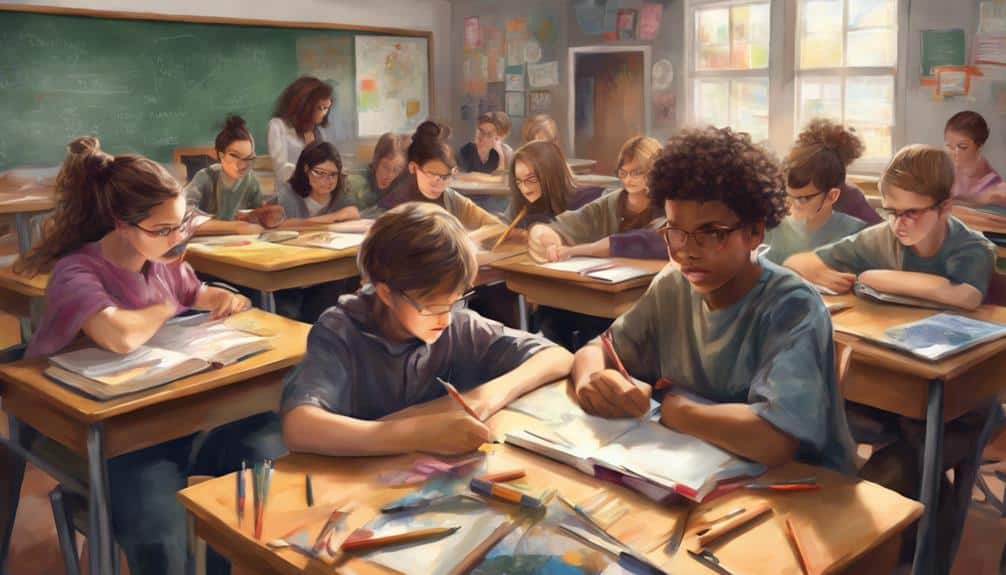
When it comes to supporting students with ADHD, dyslexia, and giftedness, it's essential to explore study strategies that cater to their individual needs.
Implementing accommodations like extra time on tests and text-to-speech readers can make a significant difference in their academic journey.
Nurturing their gifted talents while providing tailored support can pave the way for their success in school and beyond.
Study Strategies for ADHD
Implementing visual aids and color-coding techniques can greatly enhance focus and organization for students with ADHD and dyslexia when developing effective study strategies.
Breaking down tasks into smaller, manageable steps can help gifted students with a learning disability stay on track and reduce feelings of overwhelm.
Providing frequent short breaks during study sessions can improve attention and retention for these students.
Incorporating multisensory learning techniques, such as using hands-on activities or incorporating movement, can engage students with ADHD and dyslexia in their studies.
Establishing a consistent study routine with clear expectations and positive reinforcement can support these individuals in developing effective study habits.
Dyslexia Accommodations in School
Understanding the unique needs and challenges of dyslexic students is essential in creating effective accommodations for their success in school. For gifted students who are also learning disabled, tailored support is essential to help them thrive academically. Accommodations may include extended time for reading assignments and tests, text-to-speech software for better access to written content, and alternative formats like audiobooks.
Multisensory teaching methods, such as colored overlays and manipulatives, can enhance learning across subjects. Individualized education plans (IEPs) play an essential role in outlining specific dyslexia accommodations that suit each student's needs and learning style. By implementing these strategies, educators can provide the necessary support for dyslexic students to excel in their academic pursuits.
Nurturing Gifted Talents
Exploring the educational landscape for gifted students with ADHD and dyslexia involves nurturing their talents through tailored support strategies for success.
When it comes to students learning to read, providing enrichment opportunities tailored to their interests can help them thrive.
Implementing individualized accommodations, such as extended time for assignments and tests, supports their unique learning needs.
Fostering a growth mindset and emphasizing strengths like creativity and problem-solving can boost self-confidence.
Offering emotional support and understanding their challenges can create a thorough support environment for their success.
Collaborating with parents, educators, and specialists to create a thorough support plan enhances their academic journey.
Harnessing the Power of Neurodiversity
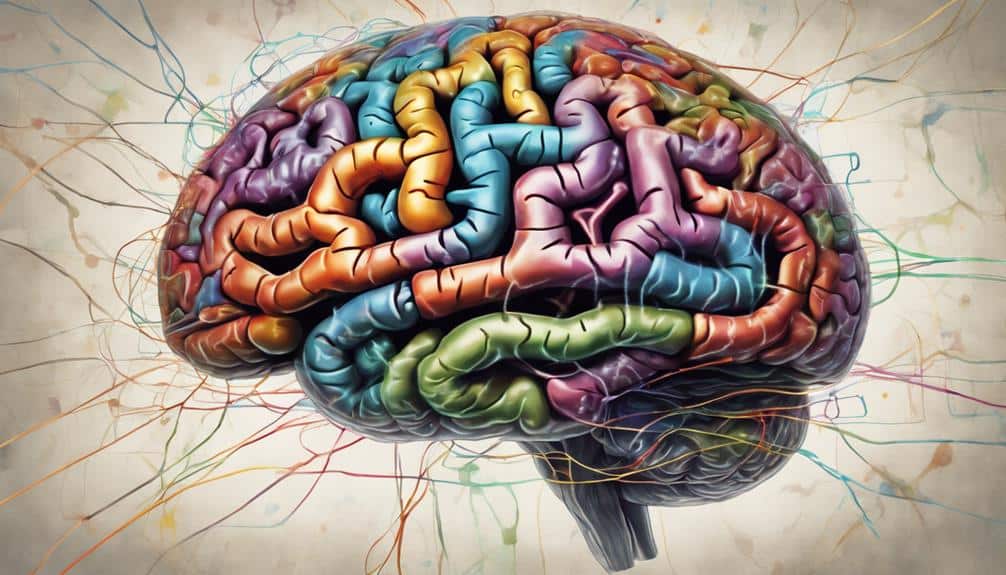
As we navigate the world of neurodiversity, we must cherish the unique perspectives that individuals with ADHD, dyslexia, and giftedness bring to the table.
By harnessing their cognitive strengths, we open doors to innovative solutions and novel ways of thinking.
Creating inclusive environments that value diverse abilities not only fosters creativity but also propels us towards collective success.
Embracing Unique Perspectives
In celebrating neurodiversity, we uncover a wealth of unique perspectives and strengths that enrich our collective experience. Individuals with ADHD, dyslexia, and giftedness bring valuable insights to the table, contributing to a more inclusive and innovative environment. Embracing these differences fosters a culture of acceptance and appreciation for the diverse ways in which people think and process information. By recognizing and harnessing the power of neurodiversity, we can create spaces that value the unique cognitive styles and strengths that each individual possesses.
- Varied Problem-Solving Approaches: Neurodiverse individuals offer innovative ways to tackle challenges.
- Enhanced Teamwork and Collaboration: Diverse cognitive styles can lead to more effective collaboration.
- Creative Solutions in Various Fields: Neurodiversity can spark creativity and innovation across different domains.
- Inclusive Environments: Valuing different perspectives leads to more inclusive and supportive spaces.
Leveraging Cognitive Strengths
Uncovering the unique cognitive strengths of individuals with ADHD, dyslexia, and giftedness reveals a wealth of potential for innovation and creativity in diverse contexts.
In the intersection of dyslexia in gifted individuals, signs of dyslexia may not always be apparent due to compensatory mechanisms or high intelligence masking difficulties. However, these individuals often showcase exceptional problem-solving abilities, pattern recognition skills, and strong visual thinking capacities.
By recognizing and nurturing these strengths, we can tap into a rich source of unique perspectives and innovative ideas. Embracing the neurodiversity within these populations enables us to leverage their cognitive strengths effectively, leading to groundbreaking solutions and enhanced productivity.
It's through understanding and harnessing these abilities that we can create environments that truly celebrate diverse talents.
Promoting Inclusive Environments
Harnessing the unique strengths of individuals with ADHD, dyslexia, and giftedness in promoting inclusive environments is key to unlocking their full potential and fostering a community that values neurodiversity.
Inclusive environments that embrace neurodiversity benefit from the unique perspectives and strengths of individuals with ADHD, dyslexia, and giftedness. Recognizing and accommodating diverse learning styles and abilities fosters a supportive and enriching community for all individuals, regardless of their neurodivergent traits.
Leveraging the power of neurodiversity in educational settings promotes creativity, innovation, and problem-solving through varied perspectives and approaches. Embracing neurodiversity in workplaces and schools leads to increased collaboration, empathy, and understanding among individuals with different cognitive profiles.
Navigating Education and Work Environments
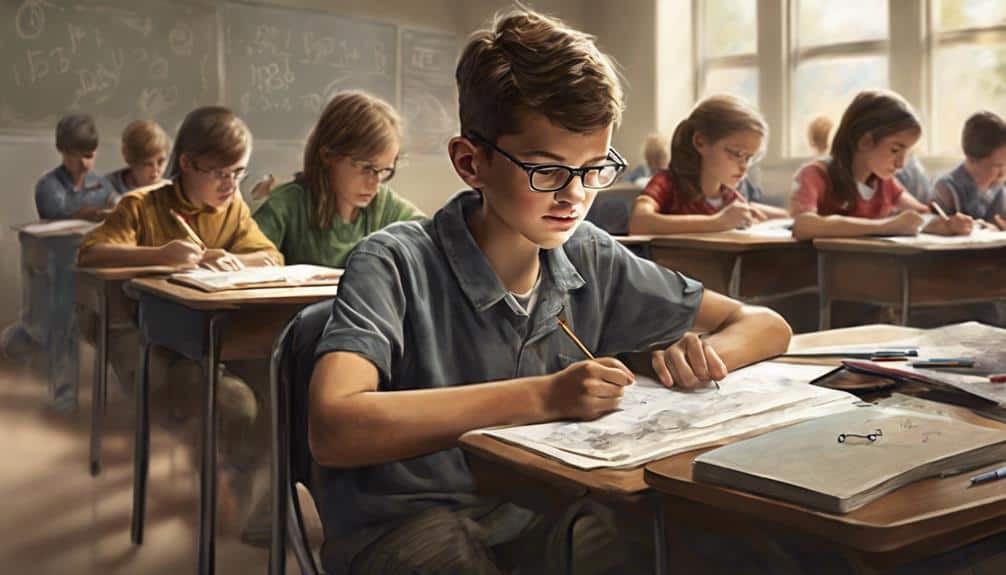
Exploring the complexities of education and work environments can present unique challenges for individuals with ADHD, dyslexia, and giftedness. In high school, the intersection of these conditions can create hurdles in academic performance and social interactions. Those with Stealth Dyslexia, who may not exhibit typical dyslexic traits, might struggle with reading comprehension despite their giftedness. To navigate these challenges, tailored accommodations like extended time for exams or audiobooks can level the playing field, allowing these individuals to showcase their true abilities.
In the workplace, individuals with ADHD, dyslexia, and giftedness may encounter difficulties with time management, organization, or written communication. Flexible schedules or assistive technology tools can aid in overcoming these obstacles and enhance productivity. Understanding the strengths and struggles of these individuals is vital for fostering inclusive environments that support their unique needs. Advocating for tailored support and raising awareness about these conditions in both educational and work settings can pave the way for success for individuals with ADHD, dyslexia, and giftedness.
Building a Supportive Community
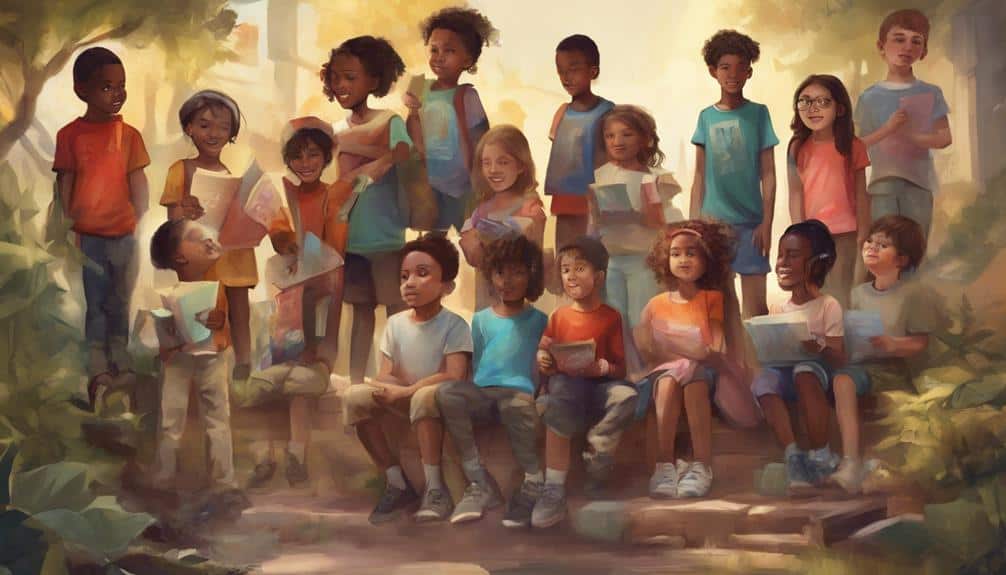
Building a strong support network is essential for individuals with ADHD, dyslexia, and giftedness to thrive and overcome challenges together. When facing the unique intersection of these cognitive abilities, finding a community that understands the complexities is critical. Here are some key ways to build a supportive community:
- Engage in Support Groups: Joining support groups focused on ADHD, dyslexia, and giftedness can provide valuable insights, advice, and a sense of belonging.
- Utilize Online Forums: Online platforms tailored to these conditions offer a space for sharing experiences, resources, and connecting with others facing similar challenges.
- Attend Community Events: Participating in workshops and seminars designed for individuals with ADHD, dyslexia, and giftedness can enhance knowledge and foster connections.
- Collaborate with Professionals: Working with educators, support professionals, and advocacy organizations can strengthen the overall support network and provide access to specialized resources.
Frequently Asked Questions
Is Dyslexia Common in Gifted Students?
Yes, dyslexia is prevalent in gifted students, with a correlation rate of approximately 20-35%. Identifying dyslexia in gifted individuals is essential for tailored interventions. Despite challenges, their strengths in creativity and conceptual thinking shine through.
Is It Possible to Have ADHD and Dyslexia?
Exploring the domain where ADHD and dyslexia converge can be challenging. Understanding the distinct symptoms of each condition is key. By identifying effective learning strategies and accommodations, embracing neurodiversity, and utilizing a strengths-based approach, individuals can thrive.
Are People With ADHD Usually Gifted?
I find that individuals with ADHD can indeed possess giftedness. This unique combination often fosters creativity and unconventional learning styles. Understanding and nurturing these qualities can help optimize their potential and address their specific needs effectively.
What Percentage of Kids With ADHD Have Dyslexia?
In my experience, the co-occurrence rates of ADHD and dyslexia range from 20-40%. Identifying these cognitive profiles is key for tailored interventions and educational strategies. Understanding this overlap is critical for providing thorough support to these children.
Conclusion
As I reflect on the journey of maneuvering ADHD, dyslexia, and giftedness, I'm reminded of a butterfly emerging from its chrysalis. Just like the butterfly, 2E individuals undergo a transformative process, facing challenges head-on to reveal their unique beauty and potential.
By embracing their neurodiversity and providing tailored support, these individuals can spread their wings and soar to new heights. Together, we can create a supportive community where every butterfly can thrive.



